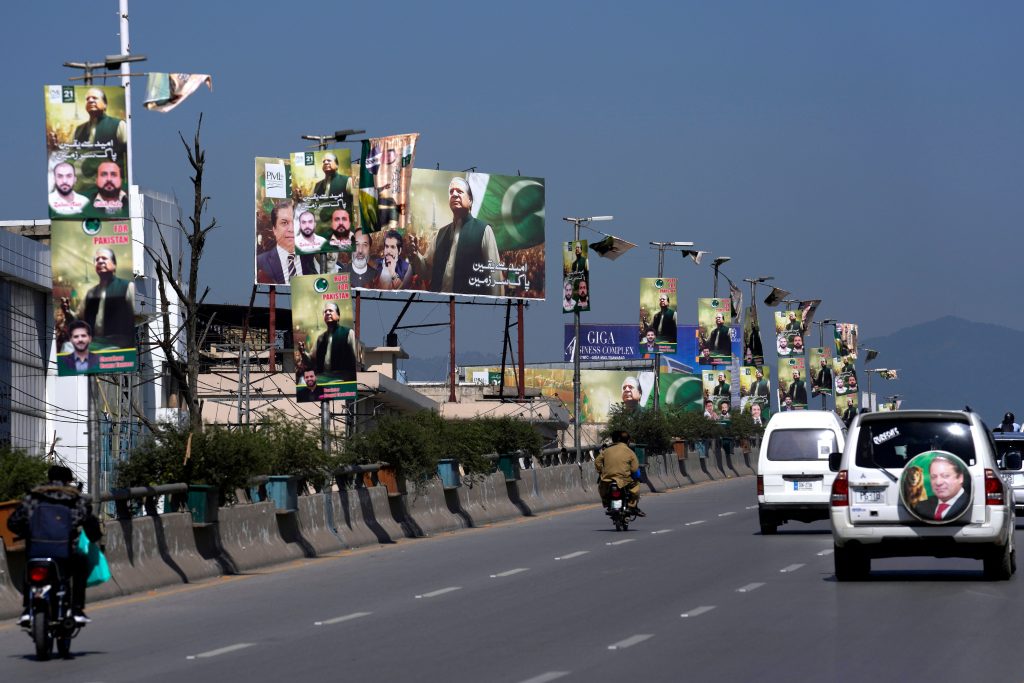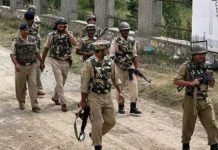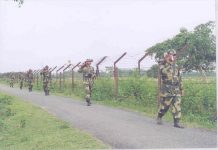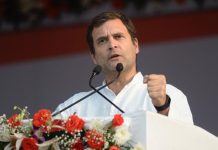
A rapturous welcome accorded to the former PM on his arrival in Lahore after a four-year self-exile in London, apparently with the blessings of the establishment, has put apparently with the blessings of the establishment, has put paid to the plans of both Zardari Bhutto’s PPP and Imran-led
There were shrieking headlines in Pakistan’s major newspapers and media channels that the saviour of the country has finally arrived, when Pakistan’s three-time prime minister Nawaz Sharif finally returned to his homeland after a four-year self-exile to London on October 24 to receive a grand, perhaps unprecedented, welcome. His arrival has to be scripted as a historical event, especially for the people of the present day Pakistan.
In 1947, the British Parliament had delivered twins, a partitioned India and a state having two wings, the Muslim majority regions of East Bengal and West Punjab. In 1971, however, its eastern wing seceded to become Bangladesh, but its western wing comprising West Punjab, Sind, the Pakhtoon region and Balochistan were huddled together to form the remaining Pakistan. For the past 52 years, its disparate people accompanied by nearly eight million Muslims of Delhi, UP and Bihar, who had been on the forefront of the movement for Pakistan before 1947, are facing existential challenges. The situation further worsened following the army’s experiment of installing a hybrid civilian government by getting Imran Khan, a cricketer-turned politician, installed as the prime minister. For this, a three-time Prime Minister Nawaz Sharif was humiliated and deposed by implicating him in cooked-up corruption cases.
Unlike his predecessors, Nawaz Sharif, who was neither hanged nor assassinated, was convicted and jailed. He, however, managed to go to London and remain in exile. Four years later, he has bounced back. He was much luckier than Z.A. Bhutto, who was sent to gallows with the connivance of a judiciary subservient to the army headquarters or GHQ. He was implicated in a false murder case; and without substantial proof, was unceremoniously hanged.
Decades later, the generals, fed up with democratically elected political leaders, decided to groom a non-political face, Imran Khan, a cricketer-turned politician, for the top job. It is said that Raheel Sharif, an army chief during the previous tenure of Nawaz Sharif as PM, who reportedly was seeking extension of his tenure as the chief, had reportedly become so furious after being denied the extension, that that he asked his successor, Qamar Jawd Bajwa, and Faize Hamid, one of his confidants, for elevating Imran Khan as the country’s new PM. Bajwa was elevated as the army chief by Nawaz Sharif, but he and his crony, Faize Hamid blatantly implemented the Raheel Sharif scheme.
Faize Hamid, who initially was an officer in the Intelligence Bureau, was later promoted as the ISI (Inter-Services Intelligence) chief. They had successfully manipulated 2018 polls in favour of Khan and his political outfit Pakistan Tehreek-i-Insaf (PTI). There were reports of a large-scale bungling in the elections, thus ensuring defeat of the candidates of Sharif’s Pakistan Muslim League- Noon (PMLN). However, due to the failure of the Khan government, the mainline political parties, PML-N and the PPP joined hands and perhaps with the tacit approval of the GHQ, ousted Imran Khan’s government by passing a no-confidence vote in the National Assembly.
Nawaz Sharif’s grand welcome has upset the apple carts of the country’s main political outfits. It is not only the Zardari-Bhutto’s Pakistan People’s Party (PPP), the main ally of the erstwhile coalition government, which is unhappy, the PML-N’s sworn political enemy, the PTI, is also indignant as the jam-packed welcome rallies at Lahore and Islamabad seems to have overshadowed its popularity in Punjab. The rallies were a delight for the participants as well as to the Pakistanis glued to television or online video platforms watching the event. For nearly 90 minutes, flowers were showered from aircrafts to welcome Sharif and the participants in the rally. Indeed. It was the return of a living icon back to home politics. Both, PPP and PTI have strongly reacted to the prompt permission given by the Civil Aviation Authority to two aircrafts showering flower petals on the party rally.
Judiciary mends its ways
Earlier, Pakistan’s former minister and the daughter of Nawaz Sharif, Maryam, had disclosed in a rally two years ago that the Accountability Court Islamabad Judge Arshad Malik, who had sentenced Sharif to a seven-year imprisonment in the Al-Azizia corruption case, later confessed in his conversation with PML-N supporter Nasir Butt that he was “blackmailed and forced (by hidden forces or the ISI)” to give verdict against the former premier.
She said Judge Malik had categorically declared that there was no evidence of money laundering, commission or any other wrong financial transaction against Nawaz Sharif but he had “orders to send him to jail for which I am repenting.”
Apart from these confessions, the mood of the high judiciary too has undergone change with the appointment of the current chief justice Qazi Faez Isa on17 September 2023. The decision of the judiciary to give prompt relief indicates that the judiciary, like the GHQ, too appears to be now correcting its past mistakes. Earlier, Umar Ata Bandial, Isa’s predecessor, was known for his proximity with Bajwa and Faize Hamid. It is believed that under the influence of Bajwa, Pakistan’s Supreme Court had dismissed Nawaz Sharif from the office of the PM in July 2017, purportedly on a cooked up charge for lying in a parliamentary wealth declaration.
The fast-track relief being given to Nawaz Sharif by the Islamabad High Court granting him protective bail in the Avenfield and Al-Azizia references till October 24 is being criticised by some opposition leaders. They are angry that the court barring the National Accountability Bureau (NAB) from arresting Sharif, under which authorities could not arrest him until he himself appears before the designated court as scheduled. In 2018, Nawaz Sharif was convicted in two cases on corruption charges, which he had vehemently denied. He was sentenced to a total of 14 years in prison.
It is quite known that in 201, Nawaz Sharif was ousted with the connivance of the then army chief, Qamar Jawed Bajwa, and his crony, Faize Hamid, the ISI chief. Faize Hamid had reportedly suffered gun-shot injuries, when his wife opened fire finding him bedded with a pretty winsome socialite claiming herself to be a journalist. The woman was stated to be the daughter of General Rani, a close friend of the former Army dictator Yahia Khan in 1971. Later, she had migrated to India to be a girl-friend of a former chief minister of the Indian state of Punjab.
Faize Hamid, who was much junior to the present incumbent General Asim Munir, was aspiring to be the army chief. However, the two conspirators parted company, and in this power game finally Imran Khan was ousted by a no-confidence vote in the National Assembly. General Munir was being sidelined by Bajwa, but finally was elevated to the position on 29 November 2022. It is being stated that Nawaz Sharif had advised his younger brother, Shahbaz, the then PM leading of the coalition government, to appoint Munir, who was the senior most general, to the coveted post. Thus, with the change of guards, the mood in the apex court and the army appears to have become friendly towards Nawaz Sharif.
With the dramatic ascendance of Sharif’s political graph in the Pakistani politics again, PML-N’s coalition partners of the erstwhile government , PPP, has become so bitter that the party might not have any alliance with the Punjab’s major political outfit, PML-N. The PPP’s leader and former foreign minister, Bilawal Bhutto, and Imran Khan’s PTI have bitterly criticised Sharif’s grand welcome in Lahore as well as at Islamabad.
With a special court in Pakistan indicting Imran Khan, the decks appear to be now being cleared for the return of the Mehboob, or the beloved, Nawaz Sharif, the savior of Pakistan facing unprecedented economic crisis and political stalemate.













